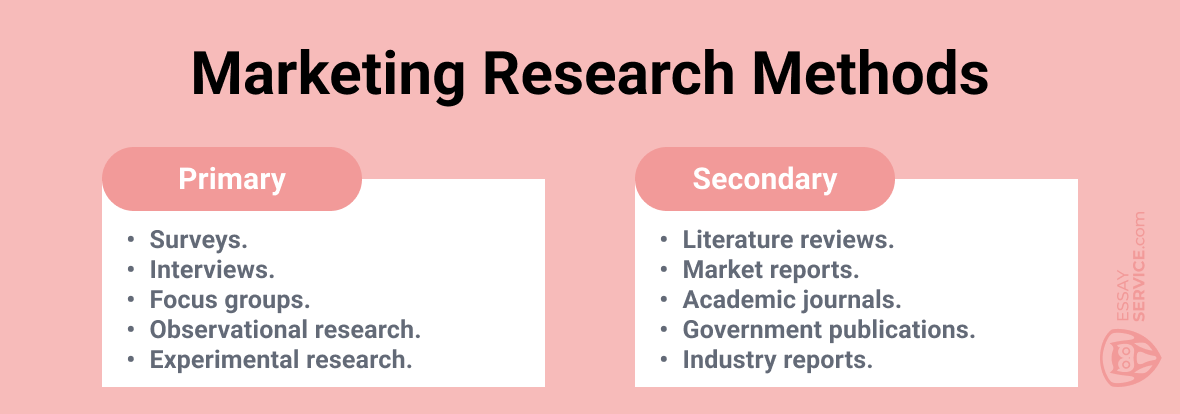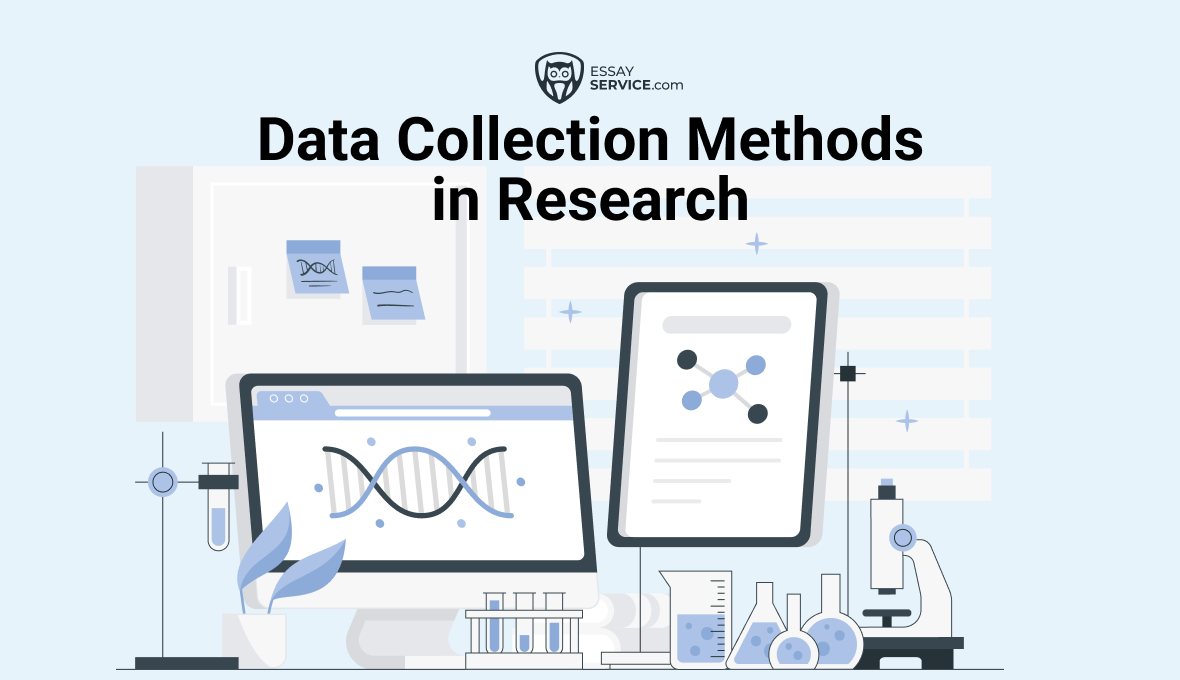Market research is like a compass for businesses. It helps them determine what customers want, what's happening in the market, and what their competitors are up to. Understanding these market research methods can help businesses grow, stay ahead of the game, and build stronger customer relationships.
In this article, we'll talk about different ways businesses can do market research, from old-school surveys and talking to focus groups to newer methods like using big data and listening to what people are saying on social media.
What Is Marketing Research?
Marketing research is the systematic process of gathering, analyzing, and interpreting information about markets, customers, competitors, and other factors influencing a company's decisions. It involves studying consumer behavior, market trends, and industry dynamics to identify opportunities and challenges. By conducting marketing research, businesses gain valuable insights that enable them to make informed strategic decisions, develop effective marketing strategies, launch successful products, and, ultimately, enhance their competitiveness and profitability in the marketplace.
Need Help with Marketing Assignments?
Try our experts for maximum results within limited timelines.
What Is the Purpose of Marketing Research for a Company?
Marketing research helps companies in a couple of big ways. Firstly, it helps them understand their customers better. Companies can figure out exactly who they're trying to sell to by studying what people buy, when, and why. This means they can make products and marketing that appeal to those people, which keeps customers happy and coming back for more.
Secondly, marketing research keeps companies competitive. By monitoring what other companies are doing and what's happening in the market, businesses can spot opportunities and avoid getting left behind. It's like having a radar for what's happening in the business world. Plus, by getting customer feedback, companies can improve their products and stay ahead of the competition.
Marketing research helps companies in a couple of big ways:
- Understanding customers: By analyzing what, when, and why people buy, companies can identify their target audience and tailor products and marketing strategies accordingly.
- Staying competitive: Monitoring market trends and competitor activities allows businesses to seize opportunities and avoid falling behind.
- Improving products: Gathering customer feedback helps companies enhance their products and stay ahead of the competition.
Why You Should Conduct a Market Research?
Why should students bother with marketing research? Well, for starters, it's a fantastic way to pick up some practical skills that are super useful in the real world. You'll learn how to collect and make sense of data, which is a big deal in today's job market. Plus, you'll get to flex your critical thinking muscles as you figure out how to interpret all that information and turn it into something meaningful. Think of it like a crash course in problem-solving and creativity!
Key points:
- Develops practical skills in data gathering and analysis.
- Encourages critical thinking and problem-solving.
- Enhances creativity and innovation.
But that's not all! Delving into market research also gives you a sneak peek into how businesses operate in the real world. You'll get to peek behind the curtain and see what makes consumers tick, what's hot in the market, and how companies stay ahead of the game. It's like getting an insider's view of the business world, which can be super valuable when you're trying to land your dream job. Plus, you might even get to rub elbows with industry pros and make some important connections along the way.
Key points:
- Provides insights into consumer behavior and market trends.
- Offers an inside look into business operations and competition.
- Creates networking opportunities with industry professionals.

Two Major Categories of Market Research
When it comes to market research, there are typically two major categories:

Primary
This category involves collecting data directly from original sources. It's like going straight to the horse's mouth. Primary marketing research includes such methods as surveys, interviews, observations, and experiments conducted specifically for the study. Primary research provides fresh, firsthand information tailored to the specific needs and objectives of the research project.
Secondary
On the flip side, secondary research involves gathering and analyzing information that already exists. It's like sifting through a treasure trove of knowledge that others have already unearthed. Secondary research sources include books, articles, reports, databases, and websites. This type of research can provide valuable context, background information, and insights into broader market trends without the need for expensive or time-consuming data collection.
The List of Marketing Research Methods
Let’s discover the main types of research methods in marketing:
Surveys
Surveys are one of the most common marketing research methods involving data collection through structured questionnaires. They can be conducted via various channels, including online, phone, or in-person. Surveys are highly versatile and can gather quantitative data on various topics, from customer satisfaction to product preferences.
For instance, a company may use surveys to gather feedback on a new product's features, pricing, and overall satisfaction level among customers.
Focus Groups
Focus groups involve gathering a small group of individuals to discuss specific topics or products under the guidance of a moderator. This qualitative method allows for an in-depth exploration of attitudes, opinions, and perceptions. Focus groups are particularly useful for generating insights into consumer motivations and preferences.
For example, a cosmetics company might use focus groups to gather feedback on a new skincare line, exploring consumer perceptions of ingredients, packaging, and branding.
Interviews
Interviews involve one-on-one conversations between a researcher and a participant, allowing for detailed exploration of individual perspectives. They can be conducted face-to-face, over the phone, or via video conferencing. As marketing research methods, interviews are ideal for gathering qualitative data on complex topics or sensitive issues.
For instance, a healthcare company might interview patients to understand their experiences with a particular medication, uncovering valuable insights into effectiveness, side effects, and dosage preferences.
Observational Research
Observational research involves observing and recording behaviors, actions, and interactions in natural or controlled settings. This method provides insights into consumer behavior without relying on self-reported data.
For example, a retail store might use observational research to track customer traffic patterns, examining which areas of the store attract the most attention and influence purchasing decisions.
Experimental Research
Experimental research involves manipulating variables to observe their effect on outcomes. This method allows researchers to establish cause-and-effect relationships and test hypotheses.
For example, a food company might conduct taste tests to determine the impact of different ingredients or formulations on consumer preferences.
Social Media Listening
Social media listening is one of the market research methods that involves monitoring and analyzing conversations and mentions on social media platforms. It provides valuable insights into consumer sentiment, trends, and brand perceptions.
For example, a clothing retailer might use social media listening to track mentions of its brand and competitors, identifying opportunities for product innovation or marketing campaigns based on popular trends.
Online Analytics
Online analytics involves analyzing data from website traffic, user behavior, and interactions to understand customer preferences and optimize digital marketing efforts.
For example, an e-commerce company might use web analytics tools to track website visitors, analyze browsing patterns, and identify opportunities to improve user experience and conversion rates.
Big Data Analysis
Big data analysis involves processing and analyzing large volumes of structured and unstructured data to uncover patterns, trends, and insights. This method enables businesses to make data-driven decisions and anticipate market changes.
For example, a financial institution might use big data analysis to detect fraudulent transactions, identify customer segments for targeted marketing campaigns, and optimize risk management strategies.
Ethnographic Research
Ethnographic research involves immersing researchers in the natural environment of the target audience to observe behaviors, rituals, and cultural practices. This method provides deep insights into consumer lifestyles, values, and needs.
For example, a travel company might conduct ethnographic research by living with local communities to understand their travel preferences and motivations, informing the development of culturally sensitive tourism experiences.
Lagging Behind the Schedule?
Use our service to obtain quality marketing research or any other task promptly.
Marketing Research Methods: Key Takeaways
Marketing research methods offer diverse approaches to gathering valuable insights into consumer behavior, preferences, and market dynamics. Here are some key takeaways:
- Diversity: Marketing research offers various methods, from surveys to social media listening, catering to different research needs.
- Insight Depth: Methods like surveys provide detailed individual insights, while others like observational research offer broader market trends.
- Data-Driven Decisions: These methods empower businesses to make informed decisions based on empirical evidence.
- Continuous Learning: Marketing research is an ongoing process, ensuring businesses stay adaptive to market changes.
- Ethical Conduct: Upholding ethical standards throughout the research process is essential for credibility and trustworthiness.
Final Thoughts
Learning about marketing research methods is super important for students because it teaches them how to gather and understand data effectively. This skill is like a superpower in today's world, where information is everywhere.
Plus, knowing how to do marketing research gives students an edge when entering the job market because companies are always looking for people who can gather and analyze data to make smart decisions. So, it's not just about passing a class – it's about setting yourself up for success in the real world!
If you’d like to know more about marketing, browse the EssayService subjects page for interesting insights and hints.
What Are the Different Methods of Marketing Research?
The different marketing research methods include surveys, focus groups, interviews, observational research, experimental research, social media listening, online analytics, big data analysis, and ethnographic research. Each method offers unique advantages in gathering insights into consumer behavior, preferences, and market trends, allowing businesses to make informed decisions and stay competitive in the marketplace.
Why Is Market Research Important?
Market research is important because it helps businesses understand their target audience better, identify market opportunities and threats, and make data-driven decisions. By conducting market research, businesses can minimize risks, optimize marketing strategies, and maximize the effectiveness of their products and services, ultimately leading to increased competitiveness and profitability.
What Is Digital Marketing Research?
Digital marketing research refers to the process of gathering and analyzing data related to digital marketing efforts, such as website traffic, social media engagement, email campaigns, and online advertising. It helps businesses measure the impact of their digital marketing activities, identify areas for improvement, and optimize their online presence to reach and engage their target audience more effectively.
- How to Do Market Research [4-Step Framework]. (2023, September 5). https://www.hotjar.com/blog/market-research/
- Methods of market research - Market research - National 5 Business management Revision - BBC Bitesize. (2023, January 23). BBC Bitesize. https://www.bbc.co.uk/bitesize/guides/zpcvpbk/revision/1
- Y. (2022, December 21). 7 Types Of Market Research And How To Improve Them. Forbes. https://www.forbes.com/sites/theyec/2022/12/19/7-types-of-market-research-and-how-to-improve-them/
You Might Also Like
New posts to your inbox!
Your submission has been received!




.png)
